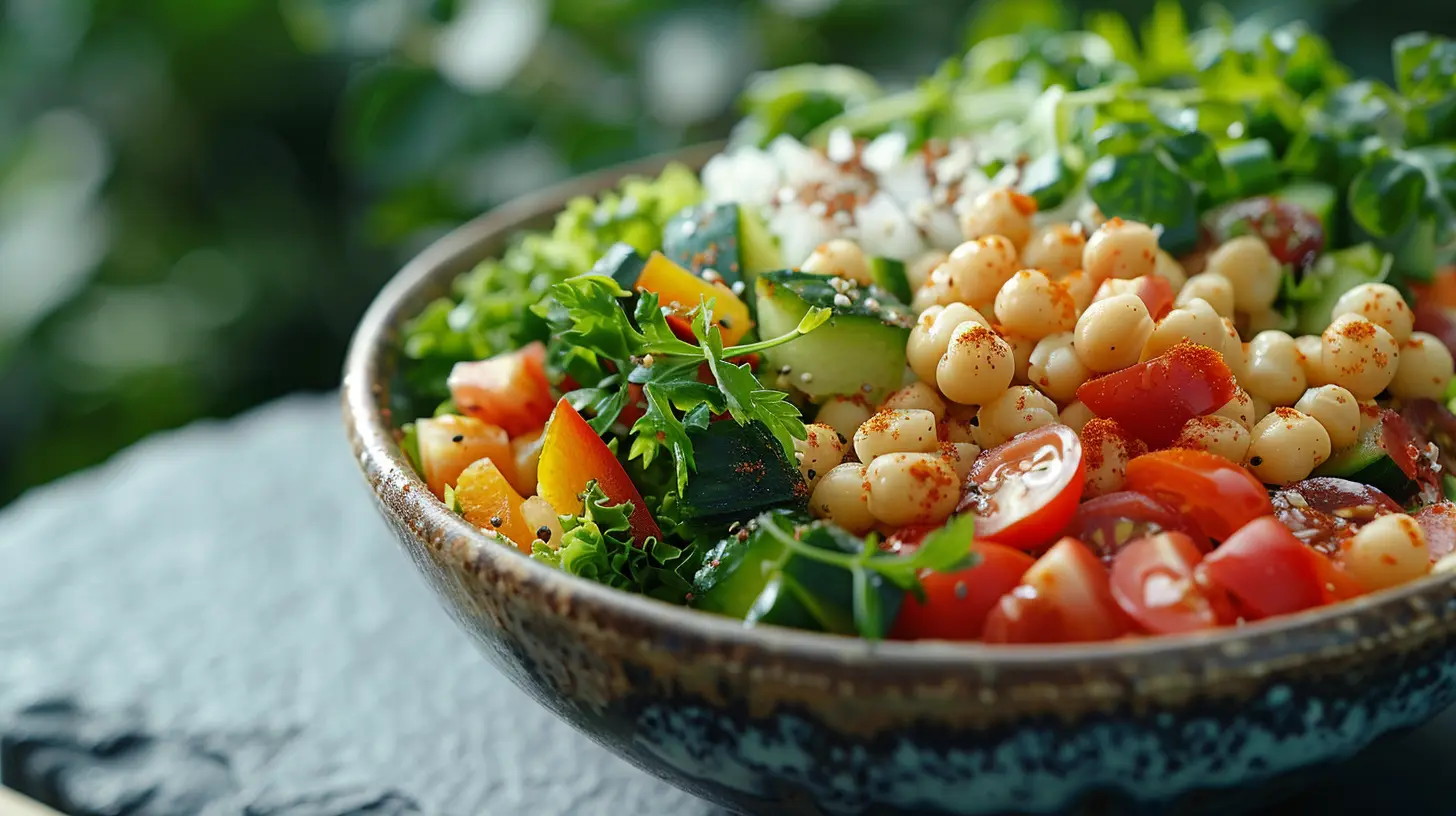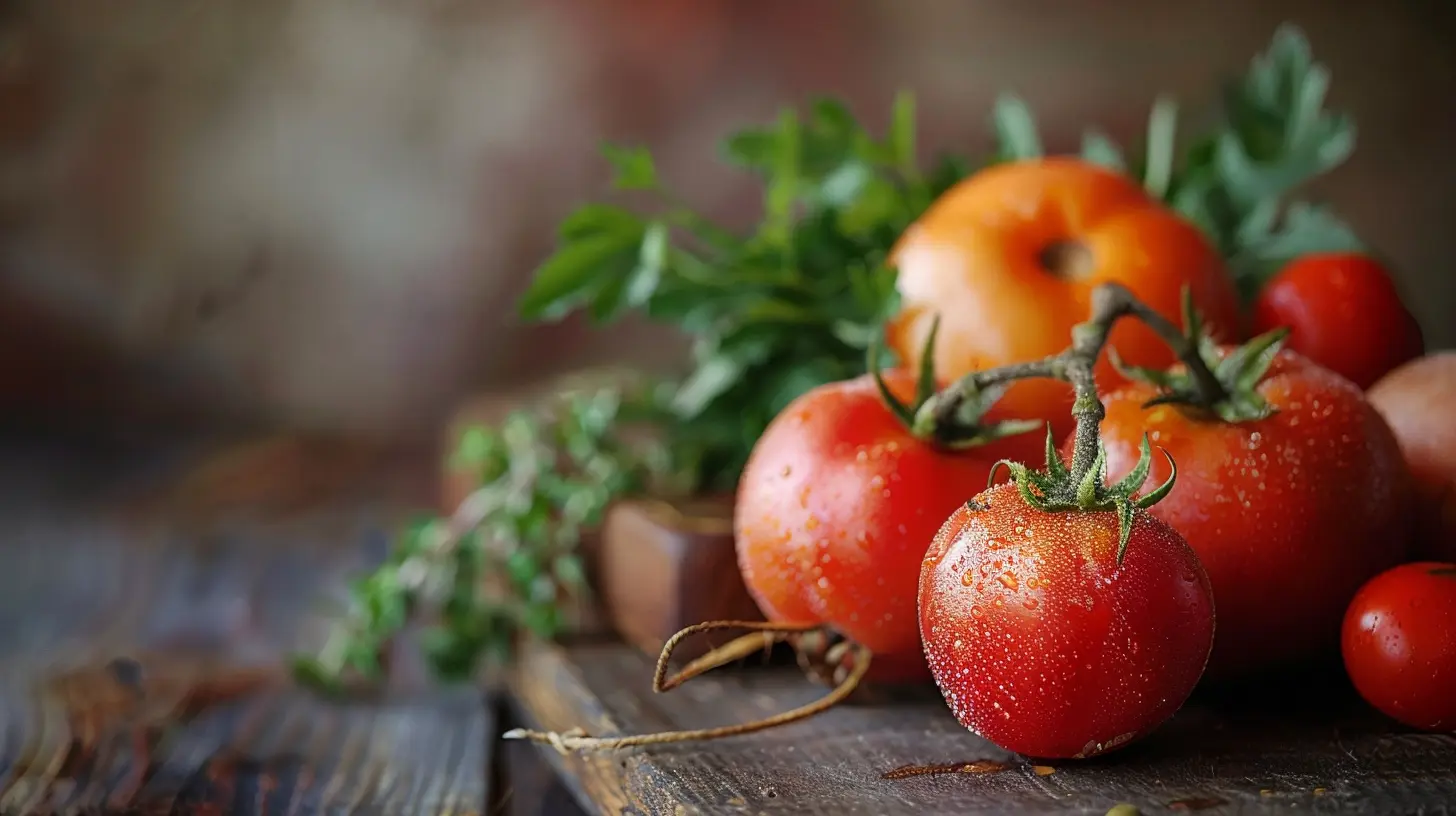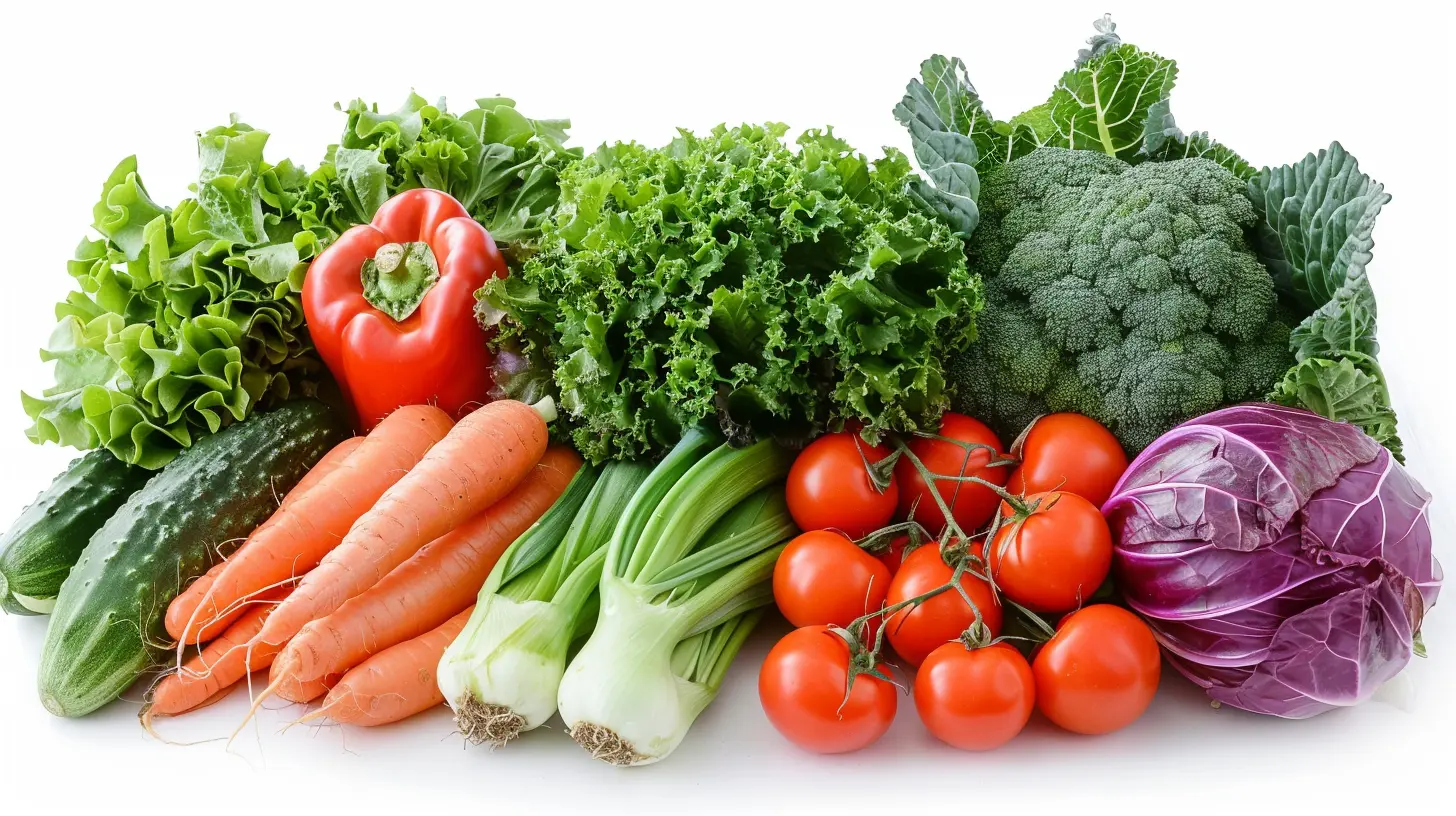The Science Behind Plant-Based Diets and Longevity
9 January 2025
Healthy living is the golden ticket we’re all chasing, right? We exercise, meditate, and try every trendy diet that promises to help us live our best (and longest) life. But if there’s one lifestyle change that science keeps backing over and over, it’s adopting a plant-based diet. Let’s dive into the biology behind this food-centric magic trick for longevity and explore why munching on greens might just be your best bet for a few extra candles on your birthday cake.
What Exactly Is a Plant-Based Diet?
You’ve probably heard of plant-based diets more times than you can count, but what does it really mean? Simply put, it’s a diet that prioritizes plant foods—think fruits, veggies, legumes, nuts, seeds, and whole grains. While it doesn’t necessarily mean you have to swear off meat or animal products completely, it does mean they take a backseat.Still sipping your morning latte or enjoying a dinner steak once in a while? Totally fine. The key is shifting your plate to be about 80% plants, with the other 20% being optional indulgences. It’s not about perfection; it’s about progress. 
The Connection Between Diet and Longevity
So, why do scientists keep nudging us toward a more plant-heavy plate? It boils down to how plant-based diets interact with our biology, reducing the risk of chronic diseases and slowing down the aging process.A Recipe for Reduced Inflammation
Ever felt bloated, achy, or just downright sluggish? Chronic inflammation might be the culprit. It’s like your body’s internal alarm system going haywire, and it’s linked to everything from heart disease to cancer.Enter plant-based foods. They're packed with antioxidants—those little superheroes that neutralize harmful molecules called free radicals. Think of antioxidants as putting out the fires that inflammation sparks in your body. A colorful plate loaded with spinach, blueberries, and sweet potatoes might be the closest thing to a natural fire extinguisher you’ll ever find.
Better Heart Health = More Years
Let’s face it—your heart is the MVP of your body. Take care of it, and it’ll take care of you. Plant-based diets lower bad cholesterol levels (LDL), decrease blood pressure, and improve overall circulation.Why? Plants are naturally low in saturated fats and high in fiber, which is like a broom sweeping away artery-clogging plaque. Plus, potassium-rich foods like bananas and avocados help regulate blood pressure, giving your ticker a break.
Studies have shown that plant-based eaters have a 16% lower risk of heart disease. That’s not just a statistic—that’s your life insurance policy right there.
Weight Management Without The Hassle
We’ve all been there—jumping on the latest fad diet train only to fall off after a week. The beauty of plant-based eating is that it’s sustainable and naturally supports weight management.Plant foods tend to be nutrient-dense but lower in calories, so you can fill up without overloading. Plus, the fiber content keeps you feeling full longer, meaning less snacking on junk between meals.
Oh, and here’s the kicker: maintaining a healthy weight isn’t just about looking good in your jeans. It’s one of the strongest predictors of a long, disease-free life.
Gut Health: The Silent Key to Longevity
Your gut is basically the command center for your health, housing trillions of bacteria that impact everything from digestion to mental health. (Wild, right?) A plant-based diet feeds your gut microbiome with prebiotics—essentially, food for your good bacteria.In return, these bacteria create short-chain fatty acids (SCFAs), which reduce inflammation and boost your immune system. The more diverse your plant intake, the happier your gut, and, ultimately, the longer your lifespan. 
What Does Science Say About Longevity?
Still think this sounds too good to be true? Well, let the evidence do the talking.Blue Zones: Living Proof of Plant Power
Ever heard of the Blue Zones? These are regions around the globe where people consistently live to 100 and beyond. Think places like Okinawa, Japan, or Sardinia, Italy. What do these long-living communities have in common? You guessed it—a predominantly plant-based diet.The Okinawans, for instance, primarily eat sweet potatoes, soy products, and green leafy veggies. Sardinians? They’re all about legumes, whole grains, and wine (in moderation).
It’s no coincidence that these people thrive into their golden years. By eating mostly plants, they’re basically giving their bodies a cheat code for long life.
The Impact of Meat Reduction
Here’s something to chew on: research shows that even reducing meat consumption can extend your lifespan. A 2016 study published in JAMA Internal Medicine found that people who followed vegetarian diets had a 12% lower mortality rate.Meat, especially red and processed varieties, has been linked to increased risks of chronic diseases like cancer and heart disease. It’s not about cutting it out completely, but rather limiting it and letting plants take center stage. 
Tips to Transition to a Plant-Based Diet
If you’re ready to eat your way to a longer life, here are some simple steps to help you get started:1. Start Small
Rome wasn’t built in a day, and neither is a plant-based diet. Try swapping out one or two meals a week with plant-based options. For example, go for a lentil soup instead of a beef stew.2. Experiment with Plant Proteins
Worried about missing out on protein? Don’t be! Beans, lentils, chickpeas, tofu, and tempeh are all protein powerhouses.3. Go Big on Variety
Keep your meals exciting by experimenting with different fruits, veggies, and grains. Ever tried quinoa or jackfruit? Now’s your chance!4. Snack Smart
Swap out chips and candy for nuts, seeds, and fresh fruit. Your body (and taste buds) will thank you.5. Keep it Balanced
It’s not just about cutting out meat; it’s about focusing on whole, nutrient-dense foods. Stay away from overly processed or sugary “vegan” snacks.Busting Myths About Plant-Based Diets
“I’ll Be Protein Deficient”
Not likely. The average person actually consumes more protein than they need. As long as you’re eating a variety of plant foods, you’re good to go.“It’s Too Expensive”
Sure, imported superfoods can cost a pretty penny, but staples like beans, rice, oats, and seasonal vegetables are super affordable.“I’ll Never Feel Full”
This one’s a myth, too. Fiber is incredibly satiating, so you’ll likely feel fuller for longer.Final Thoughts
So there you have it—the science behind plant-based diets and longevity isn’t just hype; it’s backed by hard facts. By loading up on plants, reducing inflammation, improving heart health, and balancing your gut microbiome, you’re giving yourself the best shot at a long, healthy life.It’s not about being perfect or following strict rules. Instead, it’s about making small, sustainable changes that add up to a big difference over time. Because, let’s face it: who wouldn’t want to stick around a little longer to soak up more of life’s good stuff?
all images in this post were generated using AI tools
Category:
Plant Based DietAuthor:

Jackson Mahoney
Discussion
rate this article
13 comments
James Coffey
Great insights! Excited to learn how plant-based diets can boost longevity and overall health! 🌱✨
April 5, 2025 at 3:49 AM

Jackson Mahoney
Thank you! I'm glad you're excited to explore the benefits of plant-based diets for health and longevity! 🌿✨
Maddox Monroe
Thank you for shedding light on the benefits of plant-based diets! It's inspiring to see how our food choices can impact longevity and overall health. Keep up the excellent work!
March 30, 2025 at 3:14 PM

Jackson Mahoney
Thank you for your kind words! I'm glad you found the article inspiring. It's exciting to explore how our choices can enhance health and longevity!
Leslie McElveen
Thank you for this insightful article! It’s amazing to learn how a plant-based diet can enhance longevity. I appreciate the scientific approach you’ve taken to explore this topic, and it's inspiring to consider making healthier choices for a longer life!
February 9, 2025 at 3:55 PM

Jackson Mahoney
Thank you for your kind words! I'm glad you found the article insightful and inspiring. Here's to healthier choices and a longer life!
Zaylee Cox
Proof that greens not only nourish the body, but also extend our time here!
February 1, 2025 at 5:15 PM

Jackson Mahoney
Thank you! Indeed, a plant-based diet rich in greens offers numerous health benefits that may contribute to increased longevity.
Maria McCune
Plants: the original superheroes for longevity!
January 27, 2025 at 5:01 AM

Jackson Mahoney
Absolutely! Plants provide essential nutrients and antioxidants that support health and longevity, making them nature's true superheroes.
Pierce Hall
What a fascinating read! It's amazing how plant-based diets can impact longevity and overall health. The science really supports the idea that getting more fruits, veggies, and whole grains in our meals can lead to a longer, healthier life. Can't wait to try some new recipes! 🍏🌱
January 21, 2025 at 3:18 PM

Jackson Mahoney
Thank you! I'm glad you found it interesting! Embracing more plant-based foods can truly make a big difference. Enjoy experimenting with new recipes! 🍏🌱
Cynthia Wilcox
Who knew that munching on kale and quinoa could be the secret to a long life? If eating your veggies means I get to outlive my houseplants, count me in! Here’s to a leafy green future—may we never leaf this topic!
January 17, 2025 at 3:53 PM

Jackson Mahoney
Thanks for your humorous take! Indeed, embracing a plant-based diet can contribute to longevity—here's to a vibrant, leafy future for us all! 🌱
Liora Johnson
Who knew munching on kale could add years to my life? If I’d known, I’d have traded my pizza for a salad ages ago! Here’s to living longer—and possibly still craving those cheesy slices!
January 14, 2025 at 5:45 AM

Jackson Mahoney
It's great to hear you're excited about the benefits of a plant-based diet! Balance is key—enjoy your kale and pizza in moderation for a healthier, happier life. Cheers to longevity!
Mary McNeil
Embracing a plant-based diet is a powerful step toward enhancing your health and longevity! Nourishing your body with vibrant, whole foods not only fuels your spirit but also supports a thriving life. Let nature's bounty inspire your journey to wellness!
January 13, 2025 at 6:01 PM

Jackson Mahoney
Thank you for your insightful comment! Embracing a plant-based diet truly offers numerous health benefits and can significantly contribute to longevity, as explored in our article.
Clara Barrett
Embrace the power of plant-based eating! Science shows that nourishing your body with plant foods can enhance longevity and vitality. Make the shift today, and unlock a healthier, vibrant life for yourself and future generations!
January 13, 2025 at 3:51 AM

Jackson Mahoney
Thank you for your enthusiastic support! Embracing plant-based eating can indeed lead to improved health and longevity, and it’s exciting to see more people recognizing its benefits for themselves and future generations.
Thalor Turner
Great article! 🌱 It's fascinating how a plant-based diet can boost longevity. I love discovering the science behind our food choices and their impact on health. Looking forward to trying more plant-based recipes and reaping the benefits! Keep up the good work!
January 10, 2025 at 4:31 PM

Jackson Mahoney
Thank you for your kind words! I'm glad you found the article informative. Enjoy exploring more plant-based recipes and their benefits! 🌱
Phaedron Bell
Balance and variety are essential.
January 10, 2025 at 3:56 AM

Jackson Mahoney
Absolutely! A balanced and varied diet ensures you receive a wide range of nutrients essential for optimal health and longevity.
Rosanna Jennings
This article effectively highlights the connection between plant-based diets and longevity, yet it could delve deeper into the socio-economic factors influencing dietary choices. Acknowledging disparities in access to plant-based foods would enrich the discussion and promote a more inclusive understanding of health and longevity.
January 9, 2025 at 3:19 PM

Jackson Mahoney
Thank you for your insightful comment! I appreciate your suggestion to explore socio-economic factors, and I will consider incorporating this important aspect in future discussions to enhance our understanding of health and longevity.
MORE POSTS

Hydration's Role in Detoxifying Your Body

How Stress Can Impact Your Cholesterol Levels

Tips for Maintaining Oral Health with Braces

How Sleep Ties Into Better Gut Function

The Magic of Consistent Bedtimes for Optimal Health

The Importance of Mental Health Conversations for Women

Boost Your Immunity With These Nutrient-Packed Snacks

Creating a Sustainable Fitness Routine You Actually Enjoy

Debunking Myths About Gut Health: What Science Really Says